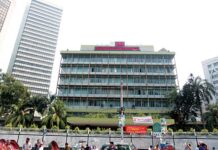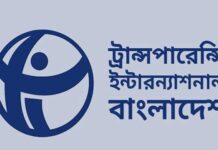The government, in line with its political promises, is set to place yet another ambitious budget for the upcoming FY 2014-15, with little said about execution and ensuring accountability of public funds.
At the meeting of the budget monitoring and resources committee on April 2, the Finance Division will seek approval for a proposal that may range between Tk2,50,000 crore and Tk2,55,000 crore.
Deficit will range between Tk67,000 crore to Tk68,000 crore, and efforts will be put in to keep the deficit under 5% of the projected Gross Domestic Product (GDP) for the coming fiscal.
The initial size of the budget for the ongoing fiscal (FY 2013-14) was Tk2,22,491 crore which was later trimmed to Tk2,11,220 crore.
Finance Minister AMA Muhith will place the budget for the coming fiscal at parliament on June 5.
The government is reportedly looking to incorporate two of its major political pledges in the upcoming budget – creating more jobs and encouraging foreign and local investment.
“The next budget will be big because our economy has expanded over the years. Moreover, we need a big budget in order to recover from the political destruction suffered during hartals and blockades last year,” Muhith recently told a group of journalists.
On April 2, in a meeting of the Fiscal Coordination Council, the GDP growth target and the rate of inflation for the new fiscal may be fixed.
Sources said although the initial plan was to fix GDP growth target at 6% because of the political turmoil, ultimately the government might target 7% for both inflation and growth.
For the ongoing fiscal, the initial growth target was 7.2%, which, however, was later slashed to 6.5% in the wake of the prolonged turbulence.
“A handsome amount of public money is spent for consumption. This is good for Bangladesh’s economy. Consequentially, the size of the budget will also be bigger,” said Shamsul Alam, member of the General Economics Division of the Planning Commission.
“Individual incomes have also risen over the years, inducing a need for an enlarged budget to ensure inclusive growth,” he said.
“Over the past five years, the Awami League government has not utilised public money well because of political reasons… Although there have been some corruption in spending public funds, if people have more money in their hands, the economy will be benefitted,” he explained.
Sources said budgetary allocation for the Annual Development Programme (ADP) in the upcoming fiscal might range between Tk84,000 crore to Tk88,000 crore. The ADP is most likely to prioritise infrastructure and agriculture as usual.
During the ongoing fiscal (FY 2013-14), the initial size of the ADP was Tk65,870 crore which was later reduced Tk54,000 crore.
At the end of December last year that is the first six months of the ongoing fiscal, 10 big ministries and division, which received 82.7% of the total ADP allocation, managed to spend only about 26.38%.
Planning Minister AHM Mustafa Kamal said: “We are preparing an implementable budget for the next fiscal year for enhancing growth rate.”
One of the major headaches for the ongoing fiscal is the narrowing inflow of money from foreign sources. Only about Tk24,000 crore came from foreign sources which was 64% lower than what it was a year ago.
At the end of the first six months of the ongoing fiscal, net foreign credit stood at Tk613 crore – nearly one third of the Tk1702 crore a year before.
The country will have to depend on the domestic banking system for further finances, professionals said.
Finance ministry officials said the preparation of the budget was going on in full swing. The ministry has already sent letters to the other ministries asking them to propose their allocation requirements.
The finance minister is scheduled to hold discussions with various think tanks today including the Policy Research Institute, the Policy Research Group, BIDs and the PPRC.
Source: UNBConnect










